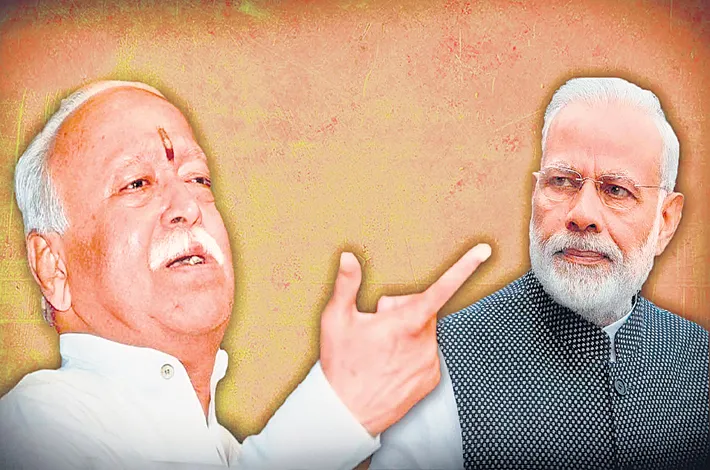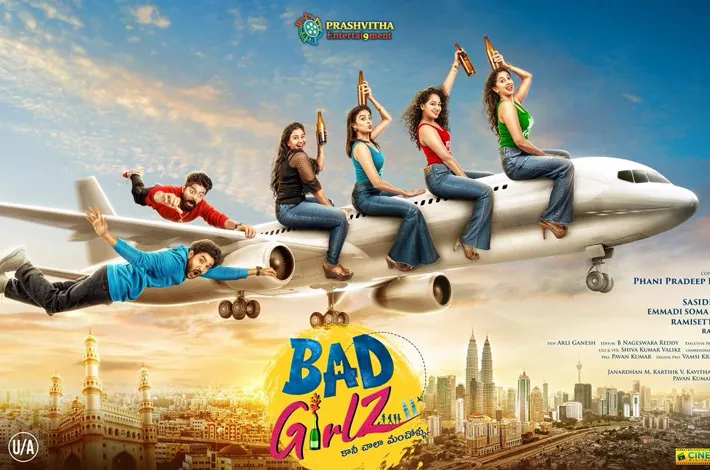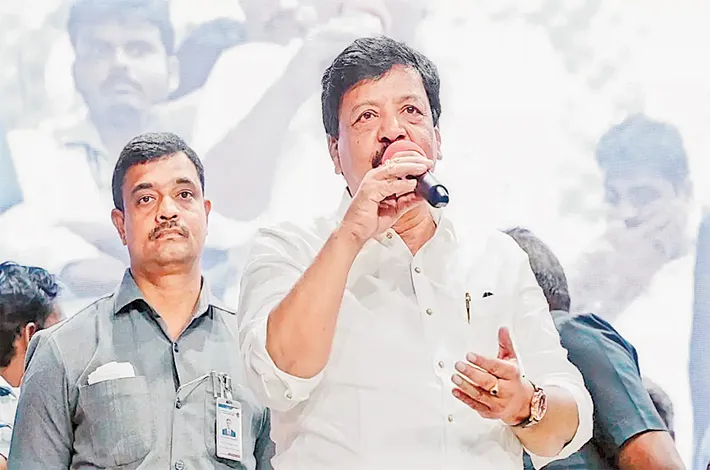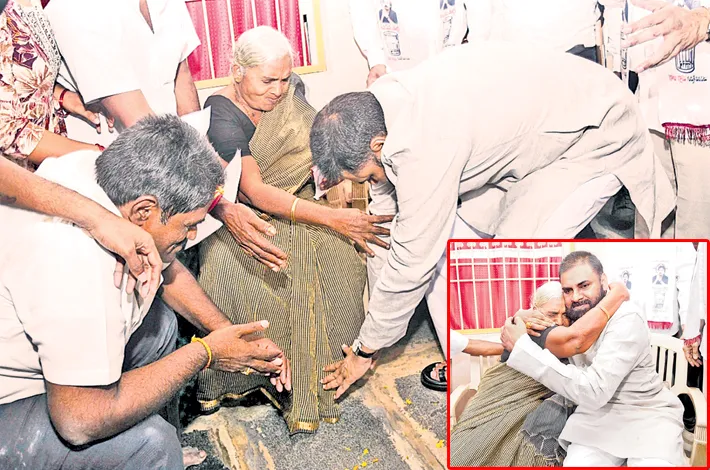Who’s Afraid of Narendra Modi?
12-07-2025 12:00:00 AM

Turning 75
- Bhagwat on September 11 and Modi on September 17
- LK Advani and Murli Manohar Joshi sidelined based on 75 agerule
On July 9, 2025, a seemingly innocuous remark by Rashtriya Swayamsevak Sangh (RSS) chief Mohan Bhagwat at a book launch event in Nagpur ignited a political maelstrom in India. Speaking at the release of Moropant Pingle: The Architect of Hindu Resurgence, Bhagwat recounted the late RSS ideologue Moropant Pingle’s philosophy that “when the shawl of 75 years is draped over you, it means you have reached a certain age and should step aside and let others work.
” With both Bhagwat and Prime Minister Narendra Modi set to turn 75 in September 2025—Bhagwat on September 11 and Modi on September 17—the statement was swiftly interpreted by opposition leaders as a veiled nudge for Modi to consider retirement. The comment, made in the context of honoring Pingle’s humility and vision, has since fueled intense debate, speculation, and political point-scoring across India’s fractious political landscape.
The opposition, particularly the Congress party, wasted no time in seizing the opportunity to needle the ruling Bharatiya Janata Party (BJP) and its towering leader, Narendra Modi. Congress general secretary Jairam Ramesh, known for his sharp social media commentary, posted on X: “Poor award-jeevi Prime Minister! What a homecoming – reminded by the RSS chief upon return that he will turn 75 on September 17, 2025. But the Prime Minister could also tell the RSS chief that he, too, will turn 75 on September 11, 2025! One arrow, two targets!”.
Ramesh’s colleague Pawan Khera doubled down, sarcastically suggesting that both Modi and Bhagwat “pick up their bags and go guide each other,” while accusing them of undermining India’s Constitution. Shiv Sena (UBT) MP Sanjay Raut further stoked the fire, questioning whether Modi would adhere to the same retirement-at-75 rule that allegedly sidelined senior BJP leaders like LK Advani and Murli Manohar Joshi.
The controversy gained further traction when senior journalist MK Venu, in a post on X, opined that Modi should retire “in a blaze of glory” after his 11 years of governance, citing Bhagwat’s statement as a timely reminder. Venu’s comment, while measured, added fuel to the narrative that Modi’s age could become a flashpoint for leadership discussions within the BJP-RSS ecosystem. Other opposition figures, such as Congress’s Abhishek Manu Singhvi, criticized the selective application of the supposed 75-year retirement rule, noting that it was enforced for the BJP’s Margdarshak Mandal but might be conveniently overlooked for the current leadership.
However, the RSS moved quickly to douse the flames. An internal circular, widely reported in the media, clarified that Bhagwat’s remark was context-specific, intended solely to honor Pingle’s legacy, and not a directive for anyone—Modi included—to retire. The RSS emphasized that Bhagwat never explicitly mentioned retirement in a political context, accusing the opposition of misrepresenting his words for political gain. This clarification, however, did little to quell the debate, as opposition leaders and sections of the media continued to speculate about potential fissures between the RSS and the BJP.
Modi’s supporters, meanwhile, have dismissed the opposition’s narrative as “wishful thinking” and a desperate attempt to undermine a leader they view as unassailable. They argue that Modi, despite approaching 75, remains in robust health, working grueling 20-hour days and maintaining an unparalleled global stature. His recent five-nation tour, described as his longest diplomatic mission to date, underscored his vigor and India’s growing influence under his leadership. Supporters point to Modi’s achievements—steering India to a $3 trillion economy, elevating its global standing, and fostering direct relationships with world leaders—as evidence that his leadership is indispensable. “Modi is now in a position to dictate terms to other world leaders, and every world leader listens to him,” a BJP spokesperson declared, reflecting the sentiment among his base.
The BJP has also leaned on its senior leadership to counter retirement rumors. Union Home Minister Amit Shah, in May 2023, explicitly stated, “Modi ji will continue to lead till 2029. There is no retirement clause in the BJP constitution”.
Defense Minister Rajnath Singh echoed this, asserting that no formal age limit exists within the party. These statements hark back to earlier controversies, such as during the 2024 Lok Sabha elections, when opposition leaders like Arvind Kejriwal speculated about Modi’s retirement, only to be rebuffed by the BJP’s top brass.
The RSS, as the ideological fountainhead of the BJP, has historically played a pivotal role in shaping the party’s direction. However, tensions have occasionally surfaced, particularly over Modi’s larger-than-life persona, which some in the RSS reportedly view as overshadowing the organization’s collective ethos. Bhagwat’s earlier comments in 2024, criticizing arrogance and aspirations to “become God,” were widely seen as a subtle rebuke of Modi’s self-styled image. Yet, Modi’s March 2025 visit to the RSS headquarters in Nagpur, his first in over a decade, was interpreted as an effort to mend ties, with both leaders publicly displaying camaraderie.
The opposition’s eagerness to amplify Bhagwat’s remark reflects their struggle to challenge Modi’s enduring popularity and electoral dominance. Despite the BJP falling short of a majority in the 2024 elections, securing 240 seats, Modi’s coalition government remains stable, and his personal approval ratings continue to soar. Critics argue that the opposition, unable to dislodge him through the ballot box, is resorting to speculative narratives about his retirement. As September 2025 approaches, the question of Modi’s future will likely intensify.
While Bhagwat’s remark may have been philosophical rather than prescriptive, its timing and the political context have made it a lightning rod for speculation. Will Modi, a leader who has redefined India’s global image and domestic politics, step aside at 75? Or will he, as his supporters insist, continue to lead with the same vigor that has defined his tenure? For now, the RSS’s clarification and the BJP’s firm backing suggest that Modi’s leadership is far from over. Yet, in India’s volatile political arena, where symbolism and rhetoric often outweigh substance, Bhagwat’s words have ensured that the age debate will linger, keeping both supporters and detractors on edge.








